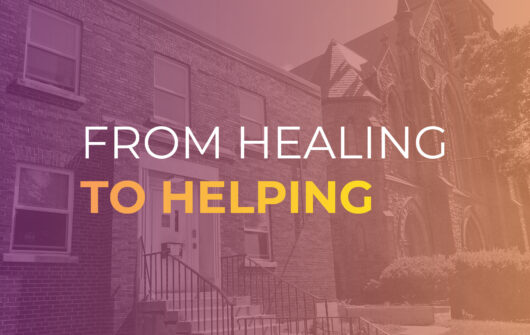Understanding the Impact of Trauma
Posted on: July 1, 2015

A cultural shift is underway throughout Cazenovia Recovery Systems. This year, our agency began transitioning to an environment immersed in Trauma-Informed Care (TIC). This model asks program participants, “What happened to you?” instead of asking, “What’s wrong with you?” and will provide staff and residents with the tools to understand and cope with past traumas.

Andrea Irizarry, Director of Clinical Services
Andrea Irizarry, Clinical Services Director, stated that the transition will involve becoming even more “open to residents’ trauma and how it contributes to their substance use.” This process will develop slowly over a period of two years, though it isn’t just resident-focused. The agency’s culture and interactions among staff will begin to reflect the five principles of TIC: safety, trust, collaboration, choice, and empowerment.
One of the first major changes involved hiring Alyssa Warden (pictured at the top of the page) to serve as Trauma Coordinator, and she will help direct this agency-wide transition. Her position is being generously funded through a grant from The Peter and Elizabeth C. Tower Foundation. She has a master’s degree in Social Work from the University at Buffalo where she interned at the Institute on Trauma and Trauma-Informed Care. Alyssa’s experiences at UB, including her introduction to TIC while studying, shaped her professionally. She explained TIC as “a lens through which to see how we provide care. Once you learn it, you’re able to see everything through it.”
Residents can expect to see an increased focus on personal wellness in their daily routines, trainings on understanding trauma throughout their history, more choices in their programming, and more.
Staff will also begin to see “a common language throughout the agency,” according to Alyssa. She hopes that this implementation leads to “an organization full of people who love coming to work.” She has already begun sending out emails to staff members promoting things like better sleep, lunch breaks, and other topics related to well-being. She’ll even be helping out with the new “Trauma-Informed Care Corner” in upcoming newsletter issues.
We are the first human services agency in Western New York to create a specific position for trauma coordination. Alyssa hopes “to empower others to take the lead in implementing TIC.” Allowing the entire agency to feel ownership of this process is critical. According to Andrea, the transition to Trauma-Informed Care “isn’t just dependent on one person. It’s going to take everyone together to make this work.”
Other Recent Posts
Your donation can save a life!
In the grip of the opioid epidemic, you can make a difference. Any amount helps.





